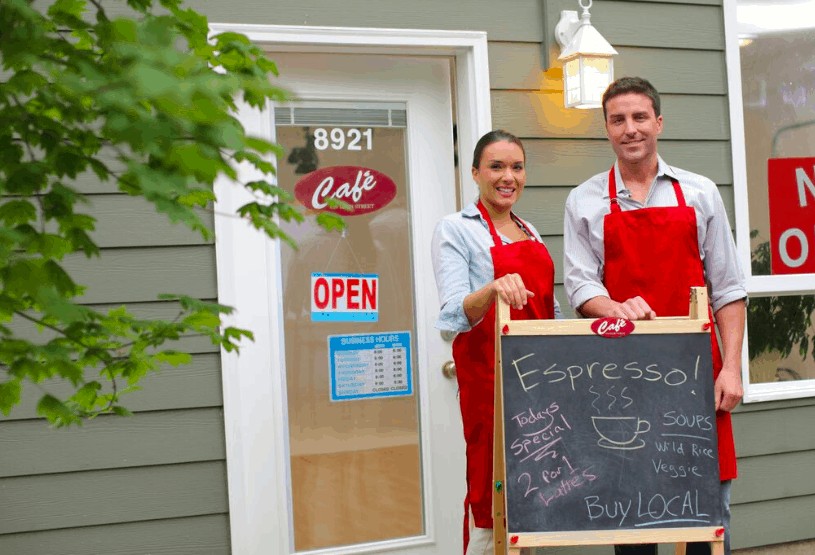Open or Shut? How Small Businesses Owners Pick Business Hours
A sign with opening hours is one of the fixtures of a small business storefront. But “open” and “closed” are not quite as black and white as they appear at first, and there are a lot of decisions when it comes to the right times to operate as a small business.
When should doors swing open and when should they clink shut? Should you extend your hours for the holiday season? These are all questions whose answers can make a big difference for your customers, your employees, and your own quality of life. So how do small businesses go about deciding?
First, consider your customers. How old is your target market? What are their typical occupations? Those kinds of realizations can help you decide the right times to operate your business.
“We used to be open until 8:30pm instead of 8pm on weeknights,” said Carol “Orange” Schroeder, the founder and co-owner of Orange Tree Imports, a specialty gift shop in Madison, Wisconsin. It turned out that “that last half hour wasn’t so busy,” Schrorder said. What people really wanted was a chance to shop on their way home in the evening. “Even just staying open until 7pm so that people could stop on their way home from work was welcome,” she learned.
The Orange Tree extends their time open an extra hour on Sundays between Thanksgiving and Christmas. When eager shoppers want to make progress on their Christmas lists, stores like this often see the benefits of temporarily extending their hours.
“Our holiday hours have been set for several years with the added hour on Sunday,” Schroeder said. “Realistically, we know that shoppers would like us to be open all the time!”
As for her staff, Schroeder said the extended holiday hours aren’t a bother, as long as there are customers that need assistance.
“It’s not hard to get staff to stay the extra hour on Sundays, once they’re there. But since Sundays outside of the holiday season aren’t as busy, especially late in the afternoon, it seems to work well for all concerned to close at 4pm,” Schroeder said.
Alero, a Mexican restaurant in Washington D.C., stays open for long stretches at a time. Since they’re located in a city with plenty of young people, they decided to stay open until 4am, through it meant going through a process to be approved to sell alcohol that late under the Alcoholic Beverage Administration’s Extended Holiday Hours Program.
“It’s simple: more open time means more time for sales,” said Victor Martinez, the owner. “We benefit in terms of extended hours meaning more sales.”
Martinez said that his entire staff benefitted from the extended hours. Waiters get more tips, and salaried workers get extra hours.
If you want to reconsider which opening hours will let your business reach the fullest potential, go through this list:
First, look for patterns. When does your store or restaurant seem to get the most traffic? How could you capitalize on that time? For instance, if your store seems really busy around 4:30 but you close at 5pm, consider what kind of sales could take place if you extended your hours until 6:00. Try opening late for a trial period, or one night a week.
Second, bank on holiday crowds. Come hell or high water, the holiday season will pretty much always mean more people spending more money. Look at ways you can extend your hours for the season. Ask loyal customers when they’d most like to do their holiday shopping, and cater to them.
Finally, consider your staff. If research points to opening during inconvenient hours or on holidays, unavoidable in retail and food service, make the hours spent worth your staff’s while. Make it standard practice to pay time and a half, and do your best to keep the place busy, so salespeople are occupied and waiters can earn tips.
Deciding when to open and close your business can be tricky, but at the end of the day, it always comes back to one thing: the customer’s needs. Focus on them, and let the rest fall into place.
DISCLAIMER: This content is for informational purposes only. OnDeck and its affiliates do not provide financial, legal, tax or accounting advice.



